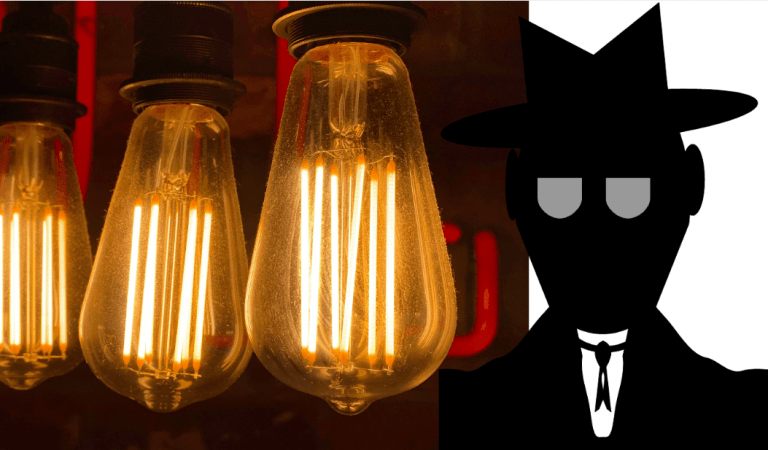We've heard how smart home gadgets like TVs, phones, speakers, etc. pose an imminent threat of being hacked or used to spy inside our homes. But in a shocking discovery made by researchers at Israel's Ben-Gurion University and the Weizmann Institute of Science, your house could be hacked even without any of the smart gadgets and using an ordinary light bulb in your living room or bedroom.
Before you rush to turn off all the light bulbs in the fear that hackers might be snooping in on your private conversations, it is important to understand that this level of hack requires ideal conditions.

How hackers use light bulb to spy?
Researchers used a technique called Lamphone Attack, which is a side-channel attack for eavesdropping sound. Hackers use a remote electro-optical sensor to analyse a hanging light bulb's frequency response to sound from a safe distance of 25 meters away from the target. Using that Lamphone data, hackers can recover human speech, which researchers found in their test run could be identified by Google Cloud Speech API and songs easily identifiable by Shazam and SoundHound.
The researchers used a telescope with a mounted electro-optical sensor that converts light into electric current. Finally, using the sound recovery system, optical signals can be converted into an acoustic signal.
The fluctuations in the air pressure on the surface of the light bulb created by the sound of conversations, music vibrate the light bulb, which is all the hackers need to eavesdrop. The light bulb needn't be a smart one for hackers to carry out this old-school analogue style spying.

How to stay safe?
For hackers, once the equipment is set up, the task of spying on your personal conversations can be extremely easy. But disrupting their plans is even simpler. You don't need to sit in the dark, fearing someone might be listening to your conversations, instead, try closing the blinds, which will obstruct the view to the light bulb to analyse vibrations around its surface and then turn it into audio.
There are many variations such as the thickness of glass or output of light from the bulb and how loud the conversations are. If not ideal, hackers won't be able to snoop in on you.
One can simply choose a heavier bulb to reduce the air pressure around its surface.
















